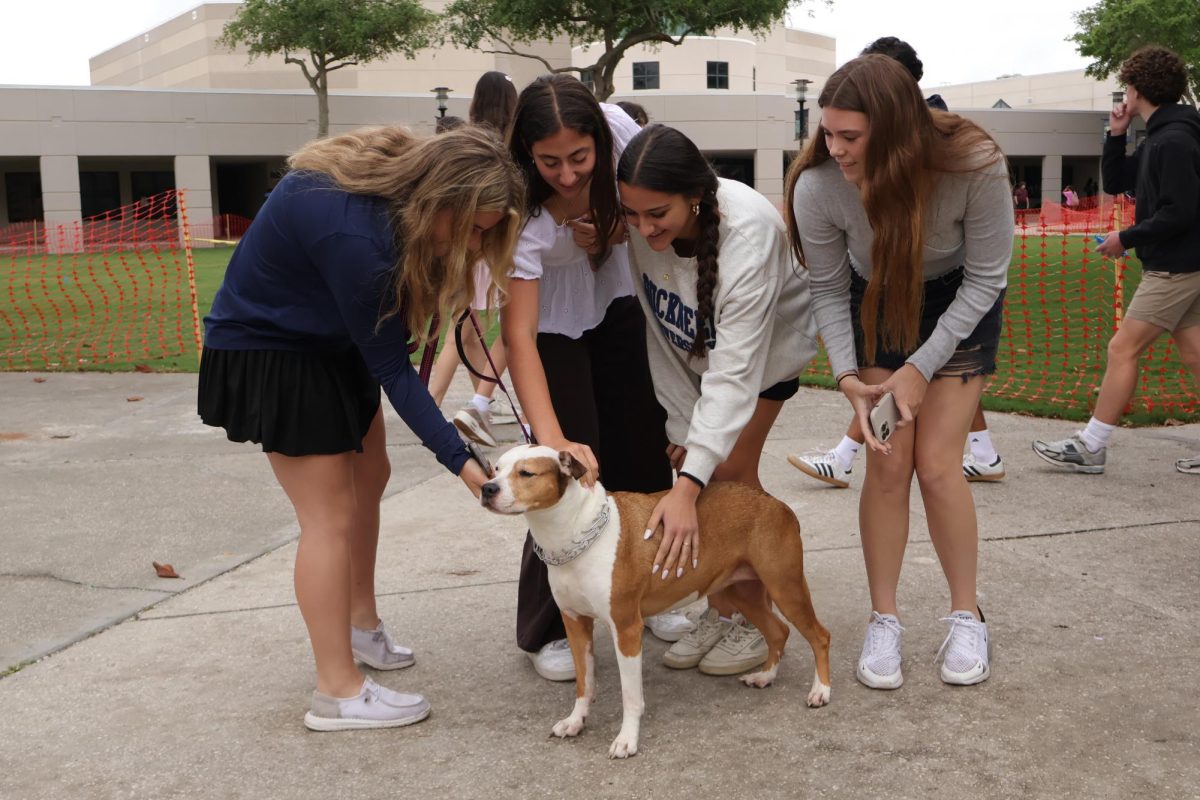While the air of October was filled with the energetic spirit of the school’s sports teams as they prepared for and competed in their respective districts tournaments, it was not until late November when the Thespians of Trinity were ready to show off their theatrical talents in an important competition of their own.
On Nov. 21, the Thespians traveled to Lyman High School to perform several events, including monologuing, duet acting and pantomiming, at their own District Festival. In addition to competing at the festival, the students were able to attend classes and workshops in order to learn more and hone their craft.
As usual, the Thespians had a strong performance at the festival. The troupe brought 38 students and participated in a total of 18 events. The Thespians can receive a variety of ratings, ranging from poor to superior, based on their performance of the events. At this year’s festival, the Thespians received a total of three excellent and 15 superior ratings.
Many often forget that, while the theatrical productions that the Troupe performs may seem effortless, perfect and refined, it is the direct result of careful planning and tireless rehearsing. Just like the athletic teams have countless hours of practice during the week, the Thespian Troupe constantly rehearses performances, volunteers in theater-related activities and prepares props in order to deliver flawless performances.
Since the beginning of the semester, the Thespians have been especially busy with preparing for their two productions: “Into the Woods” and “Shakespeare in Hollywood.” They have also been allocating a large portion of their remaining free time to practice and rehearse their events for the District Festival. Any time during breaks, lunches, after school and even before school is used for perfecting their many acts.
“Every free moment, really, we’ve been preparing,” Performing Arts Teacher Janine Papin said. “Kids even came to school today at 7:00 in the morning today to run through their scene…we’re always finding [extra] time since we’ve been so busy.”
First, in order to prepare for the District Festival, each individual Thespian chose up to three individual events for themselves in which they wished to participate. Then, due to the large size of the troupe, the students auditioned for the events that they wished to perform. The Troupe had to decide amongst themselves which were the best performances of each event, in terms of reflecting the school and the troupe, as they could only bring a maximum of three performances per each event to present and perform at the festival.
During the competition, students were judged by professional actors from all over the state. The Thespians were assessed on qualities such as character development, emotional commitment, vocal delivery and interpretation. However, Papin stresses that, while winning is important, one of the biggest takeaways from the competition is the ability to receive feedback via the comments from the professionals that describe how they can improve.
“The District Festival is a learning and an ever-developing type of opportunity that kids can use to get to the next level,” Papin said.
Not only does the District Festival allow the Thespians to showcase their talent, but it gives the Troupe important exposure to the unique and innovative talents, characteristics and abilities of other acting troupes, so that the Thespians can compare and improve their own performances to a higher level than would otherwise be impossible. This aspect is further heightened by the workshops and classes available at the festival.
The system of workshops and classes is akin to a professional conference, where prestigious teachers, scholars and mentors from a variety of different places meet to offer classes that teach and instruct the students about their respective field of acting.
Unlike that of most rivaling sports teams, the relationship between acting troupes is unique in that they are very close and friendly. The festival further allows for different troupes to interact with each other, not so much as competition as much as fellow peers. It is common for troupes to support each other by going to each other’s performances.
Being a thespian in and of itself also allows for the students to improve and acquire important practical skills for success that can also be used outside of the theater. One of the most important skills it teaches the students is the ability to publicly speak in front of an audience. Papin says that building confidence in the students is key for success, not only for roles such as monologues in acting, but in a plethora of other different areas.























